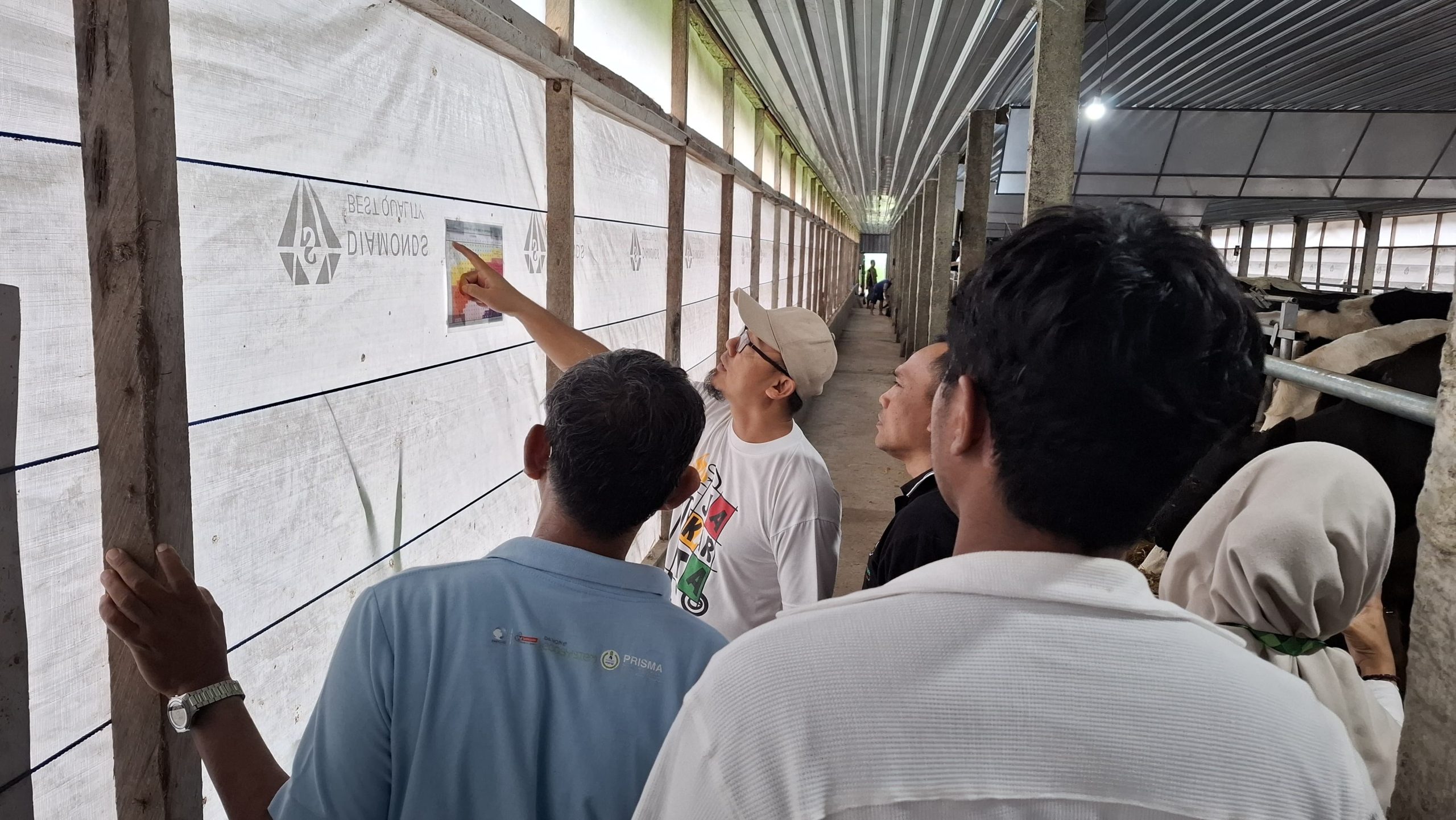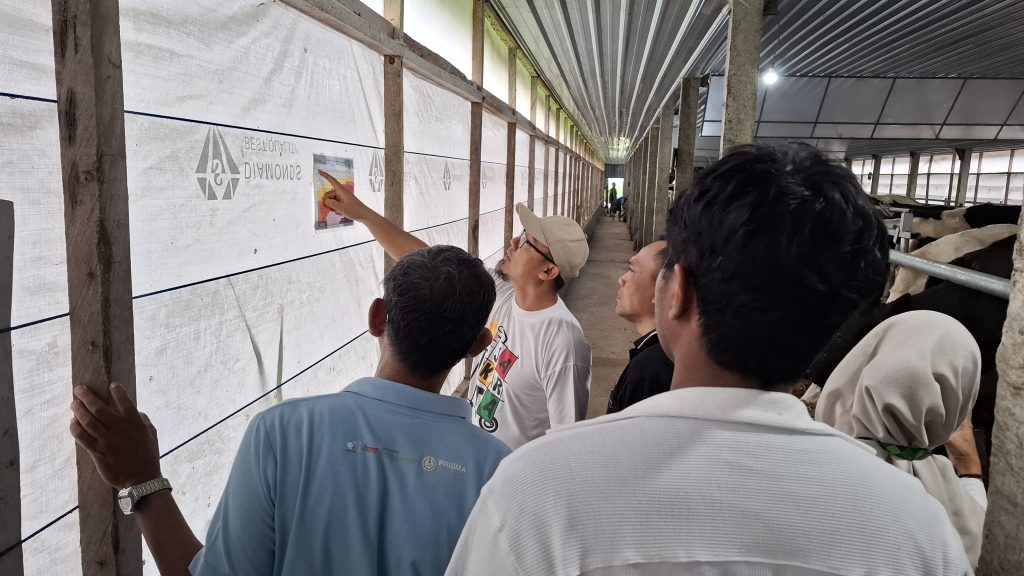PUSPETASARI and SAMESTA Conduct Comparative Study to Blitar: Study the Closed House System to Increase Livestock Productivity

On Friday, May 9, 2025, a team from the PUSPETASARI Cooperative and the SAMESTA Cooperative conducted a comparative study visit to KSU Rukun Santoso and UD Handoyo in Srengat District, Blitar Regency. This activity is part of a joint effort to study the closed-house system as an innovation in more modern and efficient livestock management.
The closed-house system is the main focus of this visit because of its ability to create an optimal cage environment for the health and productivity of livestock, especially dairy cows. The technology used—such as automatic ventilation and temperature control—can maintain stable temperature and humidity, reduce stress on livestock, and support better reproduction and milk production.

A total of five participants from both cooperatives took part in this visit. They were welcomed by Mr. Rizal and Mr. Tri from KSU Rukun Santoso who directly explained the management of the closed-house cages that they had implemented. The discussion was interactive, discussing everything from the benefits of this system to the challenges of implementation such as initial investment requirements, operational costs, and equipment maintenance.
Mr. Rizal also shared his experiences related to the obstacles encountered while developing his closed house which has only been operating for the past few months. He explained how he overcame these challenges and made various adjustments to improve livestock efficiency and comfort.
The comparative study activity is part of the FRESH Program implemented by Rumah Energi with the support of PT Sarihusada and Danone Ecosystem. This activity is a valuable provision for the PUSPETASARI team in developing rearing cages in Karangnongko, Klaten Regency. It is hoped that the implementation of the closed house system in Klaten can encourage increased productivity, livestock health, and the welfare of farmers as a whole.
Written by: Baswendra Triadi
Edited by: Fauzan Ramadhan

